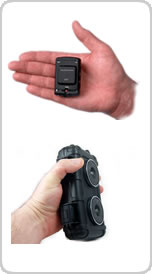Employee Polygraph Protection Act of 1988 (EPPA) (29 USC §2001 et seq.; 29 CFR Part 801)
Who is Covered The Employee Polygraph Protection Act (EPPA) applies to most private employers. The law does not cover federal, state, and local governments.
Basic Provisions/Requirements The EPPA prohibits most private employers from using lie detector tests, either for preemployment screening or during the course of employment.
Employers generally may not require or request any employee or job applicant to take a lie detector test, or discharge, discipline, or discriminate against an employee or job applicant for refusing to take a test or for exercising other rights under the Act.
Employers may not use or inquire about the results of a lie detector test or discharge or discriminate against an employee or job applicant on the basis of the results of a test, or for filing a complaint, or for participating in a proceeding under the Act.
Subject to restrictions, the Act permits polygraph (a type of lie detector) tests to be administered to certain job applicants of security service firms (armored car, alarm, and guard) and of pharmaceutical manufacturers, distributors, and dispensers.
Subject to restrictions, the Act also permits polygraph testing of certain employees of private firms who are reasonably suspected of involvement in a workplace incident (theft, embezzlement, etc.) that resulted in specific economic loss or injury to the employer.
Where polygraph examinations are allowed, they are subject to strict standards for the conduct of the test, including the pretest, testing, and post-testing phases. An examiner must be licensed and bonded or have professional liability coverage. The Act strictly limits the disclosure of information obtained during a polygraph test.
Employee Rights The EPPA provides that employees have a right to employment opportunities without being subjected to lie detector tests, unless a specific exemption applies. The Act also provides employees the right to file a lawsuit for violations of the Act. In addition, the Wage and Hour Division accepts complaints of alleged EPPA violations.
Compliance Assistance Available The Wage and Hour Division of the Employment Standards Administration administers and enforces the Act. More detailed information, including copies of explanatory brochures and regulatory and interpretative materials, may be obtained from the Wage and Hour Division’s local offices (www.dol.gov/esa/contacts/whd/america2.htm). Additional compliance assistance information may be found on the Wage and Hour Division’s Web site (www.wagehour.dol.gov) or by contacting the Wage and Hour Division help line at 1–866–4USWAGE.
Penalties/Sanctions The Secretary of Labor can bring court action to restrain violators and assess civil money penalties up to $10,000 per violation. An employer who violates the law may be liable to the employee or prospective employee for legal and equitable relief, including employment, reinstatement, promotion, and payment of lost wages and benefits.
Any person against whom a civil money penalty is assessed may, within 30 days of the notice of assessment, request a hearing before an Administrative Law Judge. If dissatisfied with the Administrative Law Judge’s decision, such person may request a review of the decision by the Secretary of Labor. Final determinations on violations are enforceable through the courts.
Relation to State, Local, and Other Federal Laws The law does not preempt any provision of any state or local law or any collective bargaining agreement that is more restrictive with respect to lie detector tests.
***
TheEmployment Law Guide is offered as a public resource. It does not create new legal obligations and it is not a substitute for the U.S. Code, Federal Register, and Code of Federal Regulations as the official sources of applicable law. Every effort has been made to ensure that the information provided is complete and accurate as of the time of publication, and this will continue. Later versions of this Guide will be offered at www.dol.gov/compliance or by calling our Toll-Free Help Line at 1–866–4–USA–DOL (1–866–487–2365).

